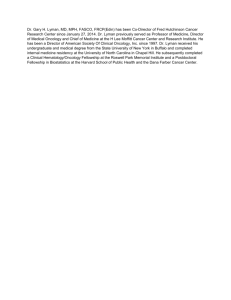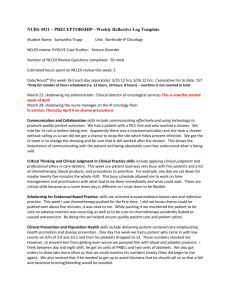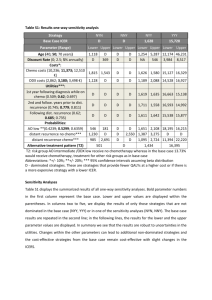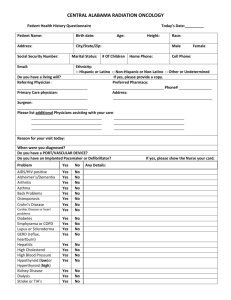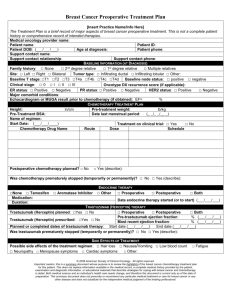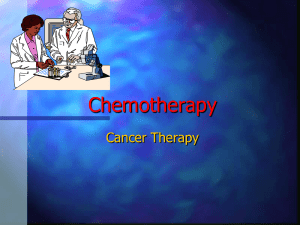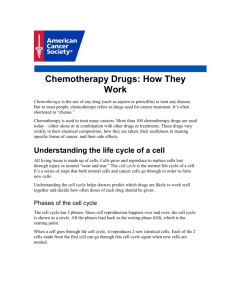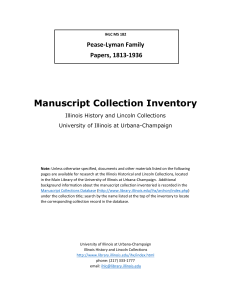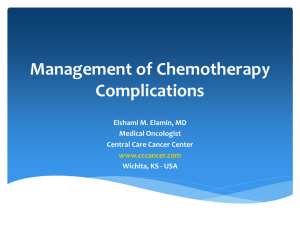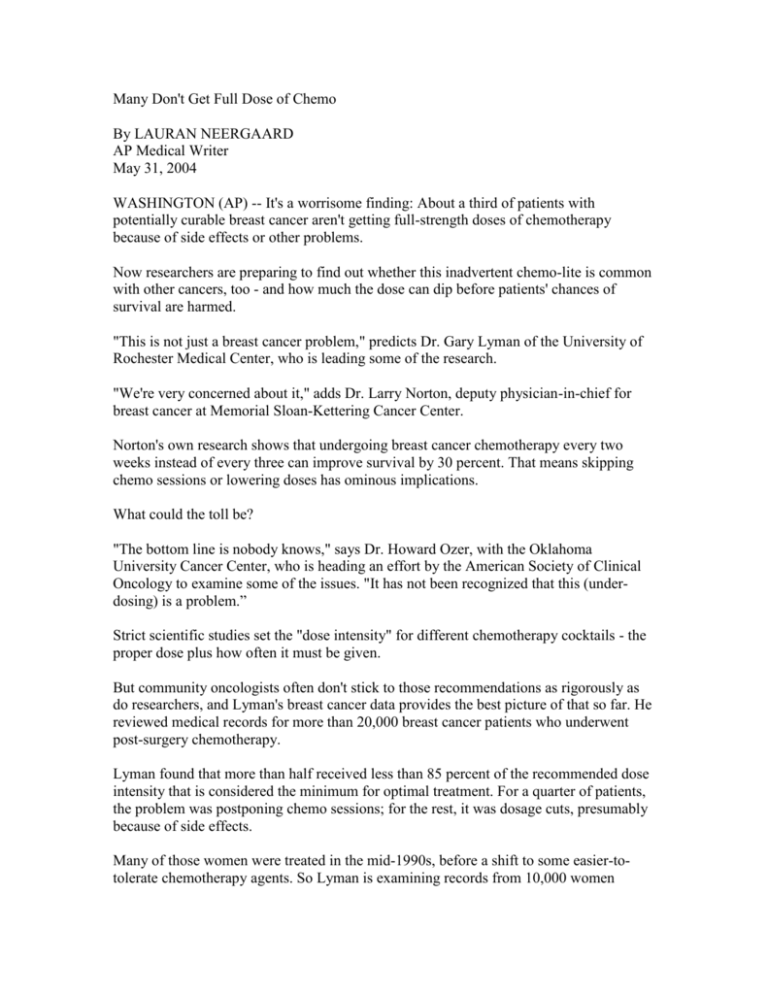
Many Don't Get Full Dose of Chemo
By LAURAN NEERGAARD
AP Medical Writer
May 31, 2004
WASHINGTON (AP) -- It's a worrisome finding: About a third of patients with
potentially curable breast cancer aren't getting full-strength doses of chemotherapy
because of side effects or other problems.
Now researchers are preparing to find out whether this inadvertent chemo-lite is common
with other cancers, too - and how much the dose can dip before patients' chances of
survival are harmed.
"This is not just a breast cancer problem," predicts Dr. Gary Lyman of the University of
Rochester Medical Center, who is leading some of the research.
"We're very concerned about it," adds Dr. Larry Norton, deputy physician-in-chief for
breast cancer at Memorial Sloan-Kettering Cancer Center.
Norton's own research shows that undergoing breast cancer chemotherapy every two
weeks instead of every three can improve survival by 30 percent. That means skipping
chemo sessions or lowering doses has ominous implications.
What could the toll be?
"The bottom line is nobody knows," says Dr. Howard Ozer, with the Oklahoma
University Cancer Center, who is heading an effort by the American Society of Clinical
Oncology to examine some of the issues. "It has not been recognized that this (underdosing) is a problem.”
Strict scientific studies set the "dose intensity" for different chemotherapy cocktails - the
proper dose plus how often it must be given.
But community oncologists often don't stick to those recommendations as rigorously as
do researchers, and Lyman's breast cancer data provides the best picture of that so far. He
reviewed medical records for more than 20,000 breast cancer patients who underwent
post-surgery chemotherapy.
Lyman found that more than half received less than 85 percent of the recommended dose
intensity that is considered the minimum for optimal treatment. For a quarter of patients,
the problem was postponing chemo sessions; for the rest, it was dosage cuts, presumably
because of side effects.
Many of those women were treated in the mid-1990s, before a shift to some easier-totolerate chemotherapy agents. So Lyman is examining records from 10,000 women
treated since 2000 - and is finding some improvement, with about a third of patients now
undertreated. He plans to report this at a cancer meeting later this year.
Still, that's worse than the 5 percent to 10 percent of patients that Lyman and some other
researchers believe truly cannot tolerate full-strength dosing despite today's improved
medications to counter side effects.
No one knows how often patients with other cancers are under-dosed, although a much
smaller study suggests half of those with non-Hodgkin's lymphoma are.
To help answer the question, Lyman has begun a registry tracking patients from 100
community-based oncology practices nationwide as they receive chemo for breast, lung,
ovarian and colorectal cancers and lymphoma. About 3,000 patients are enrolled so far.
This time, he'll also check why chemo is postponed or cut - gathering details on side
effects, and whether some skipping is due to physician disagreement over proper dosing
or simply the patient's ill-informed desire for a break.
"I've had patients say to me, 'I'd like to skip a week to take an exam or a trip,'" SloanKettering's Norton says. "I can't force you to get treatment on time, but I sure can
encourage you."
Lyman's work is funded by Amgen Inc., which makes one of the treatments for the
common chemotherapy side effect neutropenia, a loss of white blood cells that leaves
patients vulnerable to infection.
Drugs that spur white blood cell production can prevent neutropenia so chemo won't have
to be cut or delayed, but they're too expensive for routine use. In June, Ozer and
colleagues at the American Society for Clinical Oncology will finalize guidelines to help
determine who is at high enough risk of neutropenia to receive such drugs protectively.
And Ozer is helping to plan a study of five cancers similar to Lyman's registry - but that
also will attempt to determine at what level does dips in doses cause real harm.
What side effects must be tackled to prevent under-dosing will be cancer-specific,
because different chemotherapies are used for each, cautions Dr. James Doroshow of the
National Cancer Institute.
Genetic tests within a few years could decrease concern about under-dosing, by allowing
doctors to tailor patients' chemo dose in ways now impossible, Doroshow says.
Until then, Norton and Lyman advise cancer patients to talk candidly with their doctors
about ways to ease side effects without cutting chemo doses.
---
Lauran Neergaard covers health and medical issues for The Associated Press in
Washington.
© 2004 The Associated Press. All rights reserved. This material may not be published,
broadcast, rewritten or redistributed.
Purchase this AP story for Reprint
Advertisement
Copyright 2002 Associated Press. All rights reserved.
This material may not be published, broadcast, rewritten or redistributed.
Comments and questions

